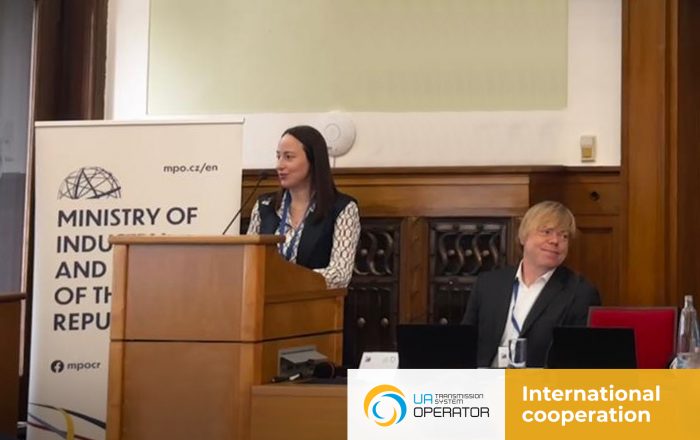The Gas TSO of Ukraine, along with its partners, is currently working on the development of the Central European Hydrogen Corridor (CEHC). This was announced by Kateryna Kovalenko, Head of the Strategy Division at the Gas TSO of Ukraine, during a speech at the CZ H2 Backbone Dialogue organized by NET4GAS (in the Czech Republic).
The key aspect of the Gas TSO of Ukraine’s approach is the repurposing of the existing gas infrastructure, which will reduce costs and ensure the competitiveness of the СЕНС project. The support of the governments of the participating countries and grants are crucial in the initial stages of the project, as hydrogen production in Ukraine must reach at least 0.9 million tons by 2035 in order for the corridor to be economically viable and to grow.
Given the importance of CEHC for Central and Eastern Europe, the GTS operators of Ukraine (GTSOU), Slovakia (Eustream) and the Czech Republic (NET4GAS) plan to request the status of a “Project of Common Interest” (PCI/PMI) from the European Commission. This status allows for partial financing for implementation and faster approval of projects, accelerating the construction of hydrogen infrastructure that can effectively meet the growing demand for hydrogen across Europe. This infrastructure will also help reduce Europe’s dependence on energy imports and fossil fuels.
“The Central European Hydrogen Corridor is not just an energy infrastructure project, it is the pathway to a pollution-free and more sustainable energy future in Europe. By working together and strategically, Ukraine and the EU can achieve ambitious goals regarding the transition from natural gas to hydrogen,” emphasized Kateryna Kovalenko.
The basis of hydrogen corridors across Europe is rooted on the Green Deal, the TEN-E regulation and the REPowerEU plan. As a result, Ukraine has signed a Memorandum with the EU, which certifies its interest in the production and transportation of hydrogen, biomethane and synthetic gas.
